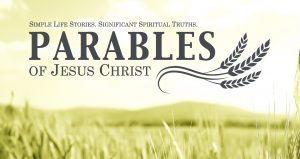This morning we are continuing in our study of Acts – specifically today, we’re looking at Acts chapter 23. Now if you happen to have missed the last couple of Sundays, no worries – let me give you a quick recap to catch you up to speed.
In Acts chapter 21, the Apostle Paul arrived in Jerusalem at the end of his third missionary journey – however, he did not receive a warm welcome from the Jews. They believed, that as Paul had travelled the known world, preaching the Gospel to the Gentiles – that he had become almost anti-Jewish and was teaching people to reject the Jewish traditions and to disregard the laws of Moses! Of course, this was not at all what Paul was teaching, but the Jews were so convinced and so riled up about this that it wasn’t long before an angry mob grabbed him, dragged him out of the temple area, and was about to kill him!
Thankfully, a Roman commander who was stationed nearby heard that a riot was developing and so he and his men rushed down to see what was going on. When he saw the crowd beating Paul, He immediately arrested Paul for whatever crime he had done to cause such an uproar – assuming at first that Paul was an Egyptian terrorist who had done some terrible things some time earlier! Well, it soon came out that Paul was not that Egyptian terrorist – and was in fact a Jew. So the commander then gave Paul the opportunity to address the rioting Jewish crowd (in hopes of calming everyone down), but Paul’s explanation of why he was preaching to the Gentiles just made the Jews even more determined to kill him – and the soldiers had to lift Paul up on their shoulders to keep him away from the angry mob.
Of course, the commander still couldn’t figure out what Paul had done to incite such a violent reaction, so he prepared to have Paul flogged in order to encourage him to confess his crime. But just as they were preparing to flog him, Paul causally mentioned that he was a Roman citizen – and it was quite illegal to flog a Roman citizen without first giving him a fair trial.
This was quite a shock (and quite a concern) for the Roman commander – because he could really be in big trouble for how he had treated a Roman citizen – and so that quickly put an end to the flogging. But the commander still didn’t know what crime Paul had committed, so the next day, he brought Paul before the Jewish High Council for trial.
Well, at that trial, Paul was nearly torn to pieces again – as the Pharisees and the Sadducees violently argued about Paul’s case! So again, the Roman commander rescued Paul from the angry mob and brought him back to the fortress. And this is where, as Mike pointed out last week, that Jesus Himself appeared to Paul and said to Him:
“Be encouraged, Paul. Just as you have been a witness to me here in Jerusalem, you must preach the Good News in Rome as well.” Acts 23:11
Despite the hardships that Paul was going through – God had a plan for it all. Paul was going to be his witness not only in Jerusalem – but also in the centre of the known universe – Rome!
And today, we’re going to see just how God arranged to make that all happen!
Leave a Comment


